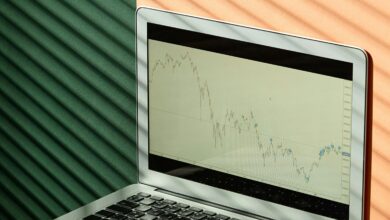The Impact of Global Events on Investment Markets: A Comprehensive Analysis

Introduction
In today’s interconnected world, investment markets are highly sensitive to global events. Whether it’s a geopolitical crisis, a natural disaster, or a major economic announcement, these occurrences can send ripples through financial markets, influencing stock prices, currency values, and investor sentiment. Understanding how global events impact investment markets is crucial for investors, policymakers, and businesses alike. This article delves into the various ways in which global events affect financial markets, exploring historical examples, underlying mechanisms, and strategies for navigating such volatility.
1. Understanding the Relationship Between Global Events and Investment Markets
Global events encompass a wide range of occurrences that have the potential to disrupt or reshape economies and societies. These include:
- Geopolitical Events : Wars, political instability, trade disputes, and diplomatic tensions.
- Economic Announcements : Central bank decisions, GDP reports, employment data, and inflation figures.
- Natural Disasters : Earthquakes, hurricanes, pandemics, and climate-related disruptions.
- Technological Advancements : Innovations like artificial intelligence (AI), blockchain, or cybersecurity breaches.
- Social Movements : Protests, demographic shifts, and cultural changes.
Each of these events can trigger immediate reactions in financial markets, as investors reassess risks, opportunities, and future expectations. The interconnectedness of global markets means that an event in one part of the world can quickly reverberate across continents.
2. How Do Global Events Influence Investment Markets?
2.1. Market Sentiment and Investor Psychology
One of the most immediate impacts of global events is on market sentiment. Investors often react emotionally to news, leading to heightened volatility. For instance:
- Fear and Uncertainty : Negative events, such as wars or pandemics, tend to increase fear, prompting investors to sell assets perceived as risky (e.g., stocks) and flock to safe-haven assets like gold or government bonds.
- Optimism and Speculation : Positive developments, such as breakthroughs in technology or peace treaties, can boost confidence, driving up demand for equities and other growth-oriented investments.
2.2. Supply Chain Disruptions
Global events frequently disrupt supply chains, affecting industries reliant on international trade. For example:
- During the COVID-19 pandemic, lockdowns and restrictions caused shortages of essential goods, impacting sectors like manufacturing, retail, and logistics.
- Similarly, geopolitical conflicts, such as Russia’s invasion of Ukraine, have disrupted energy supplies, causing oil and gas prices to spike globally.
2.3. Currency Fluctuations
Currency markets are particularly sensitive to global events. Changes in interest rates, trade balances, or political stability can lead to significant fluctuations in exchange rates. For instance:
- Brexit negotiations created uncertainty about the UK economy, causing the British pound to experience sharp declines against major currencies.
- Conversely, strong economic performance or favorable trade deals can strengthen a nation’s currency, attracting foreign investment.
2.4. Policy Responses and Regulatory Changes
Governments and central banks often respond to global events with monetary or fiscal policies, which directly influence investment markets. Examples include:
- Quantitative Easing (QE) : During the 2008 financial crisis, central banks injected liquidity into the economy by purchasing government bonds, stabilizing markets but also inflating asset prices.
- Trade Tariffs : Imposing tariffs on imports can protect domestic industries but may also reduce corporate profits and hurt consumer spending.
3. Historical Case Studies: Lessons from the Past
To better understand the impact of global events on investment markets, let us examine some notable historical examples:
3.1. The 2008 Financial Crisis
Triggered by the collapse of Lehman Brothers, the 2008 financial crisis was a watershed moment for global markets. Subprime mortgage defaults led to widespread panic, resulting in massive sell-offs in equities and real estate. Governments worldwide intervened with bailouts and stimulus packages, reshaping regulatory frameworks and investor behavior.
3.2. Brexit Referendum (2016)
When the UK voted to leave the European Union, financial markets reacted sharply. The FTSE 100 index plummeted initially, while the pound hit multi-decade lows. However, over time, certain sectors adapted, and new trading relationships emerged, illustrating the dynamic nature of market responses.
3.3. COVID-19 Pandemic (2020)
The pandemic caused unprecedented disruption, with global stock markets experiencing their fastest bear market decline in history. Travel bans, lockdowns, and remote work trends transformed entire industries. Tech companies thrived as digital adoption accelerated, while airlines and hospitality struggled.
4. Strategies for Navigating Market Volatility Caused by Global Events
Given the inevitability of global events, investors must adopt strategies to mitigate risks and capitalize on opportunities. Here are some key approaches:
4.1. Diversification
Spreading investments across different asset classes, sectors, and geographies reduces exposure to any single risk factor. For example, holding a mix of stocks, bonds, commodities, and real estate can cushion against market swings.
4.2. Hedging
Using derivatives like options and futures allows investors to hedge against adverse price movements. For instance, purchasing put options on a stock portfolio provides downside protection during turbulent times.
4.3. Staying Informed
Keeping abreast of global developments enables investors to anticipate potential impacts. Following reliable news sources, analyzing expert commentary, and monitoring economic indicators are essential practices.
4.4. Long-Term Perspective
While short-term volatility can be unsettling, maintaining a long-term investment horizon helps smooth out temporary fluctuations. Historically, markets have recovered from even the most severe downturns.
4.5. Adapting to Change
Flexibility is critical in responding to evolving circumstances. Investors should periodically review their portfolios and adjust allocations based on changing conditions.
5. Future Outlook: Preparing for Tomorrow’s Challenges
As we look ahead, several trends suggest that global events will continue to shape investment markets profoundly:
- Climate Change : Increasing frequency and severity of natural disasters pose significant risks to infrastructure, agriculture, and insurance industries.
- Technological Innovation : Advances in AI, renewable energy, and biotechnology could create new investment opportunities while rendering traditional industries obsolete.
- Geopolitical Tensions : Rising nationalism and competition among superpowers may lead to further fragmentation of global trade networks.
Investors who embrace adaptability, resilience, and informed decision-making will be best positioned to thrive in this ever-changing landscape.




